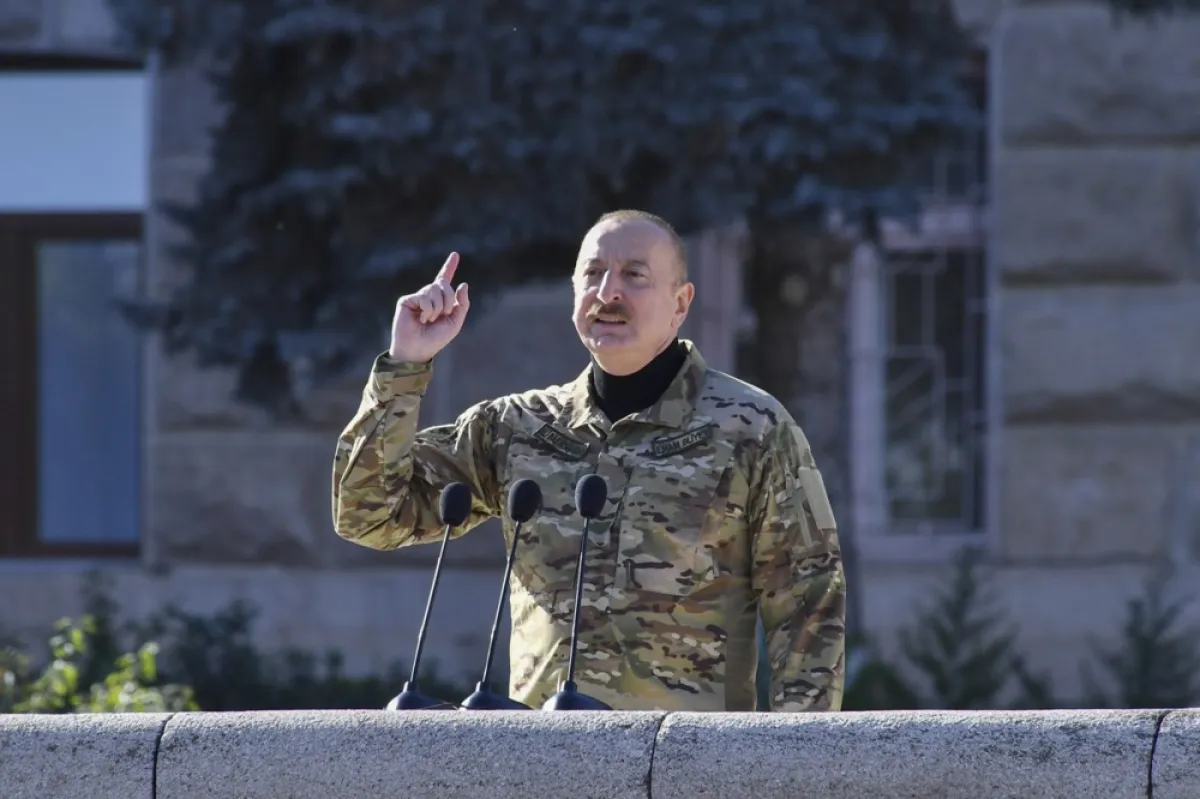
Narratives identical or similar to those fostered by Russian propaganda have also been circulated in the current election campaign in Romania. They transpired not only in the rhetoric of far-right parties, which for years have internalized such theses, but also in the statements of certain politicians aligned to Romania's pro-Western course.

Romanian influencers, like the sports agent Ana Maria Prodan, continue to promote Călin Georgescu. Just like their favorite, influencers have been amplifying a series of Russian narratives, most of them adapted to Romania, but also all kinds of pseudo-scientific or conspiracy nonsense.

From Diana Șoșoacă's “pen revolution” to George Simion's “giro giro girofaru” posts and #CălinGeorgescu, sovereigntists have taken Romania’s TikTok by storm, a space where they campaigned even on election day. Altogether, sovereigntist candidates grabbed nearly 40% of total votes.

Donald Trump (re)winning the White House could give a long-term boost to the far right in Europe, but it could also encourage the EU to rely more on itself.

At home, Donald Trump could adopt certain illiberal measures. At international level, we could see new policies towards Russia and Ukraine, a trade war with China, tensions with Europe and an escalation in the Middle East.

Russia lost a battle in the hybrid war against Chișinău, but the election also revealed Moldova's vulnerabilities, the pro-Europeans' faulty communication and the need for the authorities to do more. Veridica’s staff and contributors analyze the result of the election.

Boyko Borissov’s GERB party expectedly topped the vote, but the elections left a bitter taste that political influence can be easily bought. They also underlined a worrying tendency for ethnicization of the vote.

The elections will be not only a struggle for power but also an important geopolitical event that will define the future of a country at a crossroads between the West and rapprochement with Russia.

Polls show there is no clear frontrunner in the race between Kamala Harris and Donald Trump. Both candidates are now focusing on the “swing” states, which will decide the next US presi-dent.

Ursula von der Leyen says there should be an equal number of female and male commissioners, but political priorities and the stalling of the EU's Franco-German engine put gender parity on the back burner.

(Pro-Russian) candidates in the presidential election in the Republic of Moldova campaign by spreading panicky messages, arguing, among other things, that the Romanian army will cross the Prut River or that Moldova will go to war.

Huge amounts of money are spent in election campaigns overseas, which is far too much, even for Americans.

Against the backdrop of voter fatigue, Bulgaria’s latest elections saw the rise of a new nationalist party, “Greatness”, while Boiko Borissov’s GERB maintained its ascending trend.

The rise of the far-right in certain EU Member States will be of little consequence in the coming years, as the European Parliament and the European Commission remain under the influence of center factions. New movements are likely to emerge in the long-term that might change the configuration of the EU.

The European Commission will probably be formed according to the consensus reached by the center of European politics – People’s Party, the Socialists and ALDE/Renew - but it will confirm Europe's turn to the right.

Former prime-minister Boyko Borissov’s GERB party is tipped to win Bulgaria’s split election. But amid an expected low voter turnout, pro-Russian parties are seeking a moment.

The lists, dominated by MEPs standing out for absenteeism and "awarded" for anti-performance and newcomers who rely on scandals and TV notoriety.

President Recep Tayyip Erdoğan's Islamist AKP party sustained a bitter defeat in the local election. Is Turkey heading for a “reset” and the end of the Erdoğan era?

The Polish conservatives are heading for a second defeat in 6 months, this time in local elections. Meanwhile, as pro-Europeans are trying to reset the system, the pro-Russians are increasingly vocal.

The presidential “election” in Russia is the pinnacle of a long series of crimes, abuses and diversions designed to turn Putin's dictatorship into a totalitarian system in the truest sense of the word. Launched as an iron-fisted regime meant to speed up the country's structural modernization, Putin's dictatorship ultimately led to Russia's complete break with Europe and its firm anchoring in the Asian political model.

Leaders of the most powerful European political group are meeting in Bucharest. Their decisions might influence the EU and Romania in the years ahead, should the EPP win the European Parliament election again.

In the recent legislative elections, the regime in Tehran scored a victory and suffered a defeat at the same time. The winners were exactly who the ayatollahs wanted to be, but the turnout was the lowest in the history of the Islamic republic. The victory shows that the regime's ultraconservatives are firmly in control of Iran, but the low turnout indicates a loss of popular support for a regime that has been increasingly challenged in recent years.

Elections in Belarus were anything but free, with no opposition candidates or independent observers, and a government disinformation campaign designed to instill fear. The opposition managed, nonetheless, to get its message to at least part of the electorate, and in spite governmental efforts, turnout was lower than expected.

Why the year 2024 is a test for liberal democracies around the world and disinformation might be fatal to them.

On February 25, Belarus will hold local and legislative elections, the first since the anti-Lukashenko protests of 2020. Minsk clamped down on the opposition in the run up to the elections, and only pro-Lukashenko candidates are competing. Belarus remains firmly in Russia’s orbit.

Azerbaijan's authoritarian leader, Ilham Aliyev, was re-elected president after winning the Nagorno-Karabakh war and can turn his country into an energy and trade hub halfway between Asia and Europe.

The victory of the pro-independence candidate in the Taiwan elections complicates once again China-USA relations. China’s economic difficulties, the elections in the USA and the crisis in Yemen can however prevent an escalation.